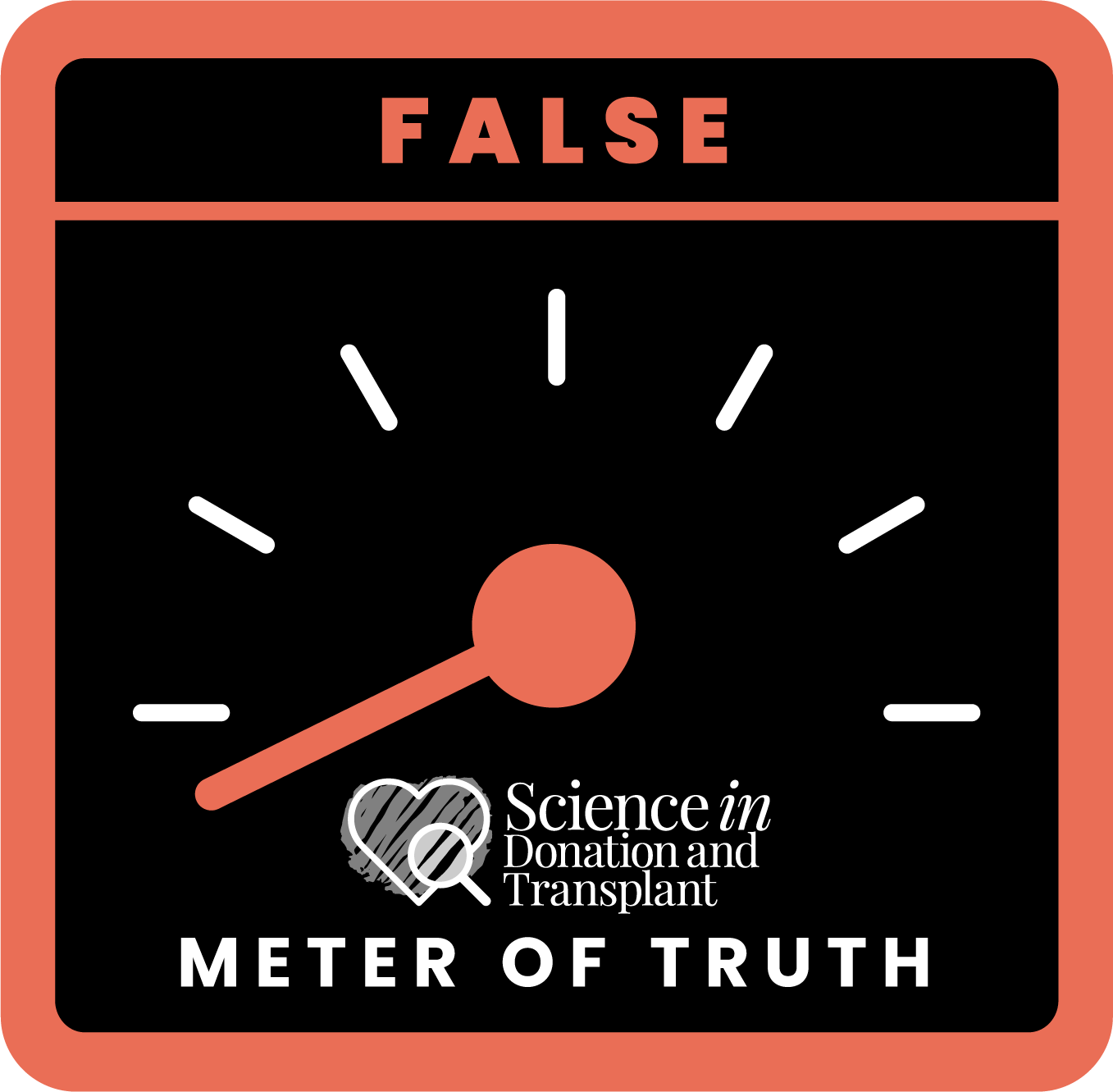Fact Check
Congress created “organ procurement organizations” (OPOs) through the enactment and subsequent amendments to the National Organ Transplant Act (“NOTA) in 1984. Congress understood that the facilitation of organ donation and transplant starts with the altruistic gift of an organ. Decisions are often made years before the individual’s demise or at the bedside of a dying or deceased patient by their grieving family members.
Congress ensured that OPOs were non-profit, local organizations, with federal accountability for performance. Public trust was “baked in” to the structure of these unique organizations.
President of the Association of Organ Procurement Organizations Colleen McCarthy stated in an op-ed on May 23, 2024 regarding organ donation and transplant,
“nearly 20% of donated organs go unused. Last year alone, more than 10,000 organs recovered from generous donors — over 8,500 of which were kidneys — were not transplanted into patients.”
Executive Director at LifeCenter Organ Donor Network Barry Massa stated in an op-ed on August 16, 2023 regarding organ donation and transplant,
“... when the federal government should be encouraging cooperation, alignment and shared best practices to improve the system ... the Centers for Medicare and Medicaid Services (CMS) adopted a new final rule that will effectively undermine these important goals.”
Philadelphia City Councilmember Cherelle Parker stated in an op-ed on March 1, 2022 regarding organ donation and transplant,
“At a critical juncture when the federal government should be encouraging cooperation, alignment and shared best practices to improve the system, in the closing days of the previous administration, the Centers for Medicare and Medicaid Services (CMS) adopted a new final rule that will effectively undermine these important goals.”
The Hastings Center stated on May 10, 2021,
”When attempting to fix a problem, it is unethical to choose a broken tool out of convenience when better tools exist.”
N.J. Assemblyman Herb Conaway Jr. stated on March 25, 2021,
“The passage of AR 212 resolution by the New Jersey Assembly condemns the Trump administration‘s midnight rule that disrupts our world-class organ donation and transplantation system in this nation with flawed measures and bad science. This move is a textbook venture capitalist strategy to privatize donation and transplantation in this country.”
U.S. Senate Committee on Finance stated on March 16, 2021,
“GAO (Government Accountability Office) found that revisions in the final rule would ‘increase donation rates and organ transplantation rates’... this will save more than 7,000 lives every year.”
Greg Segal stated on December 2, 2020, in an op-ed article,



